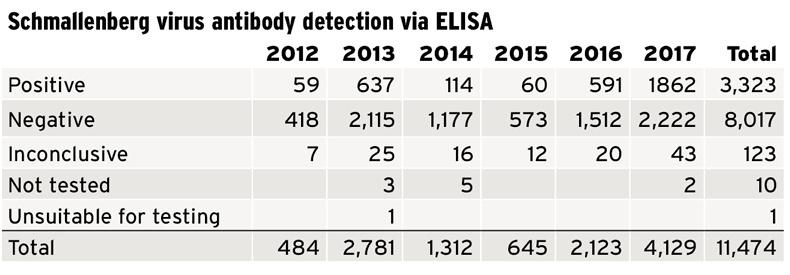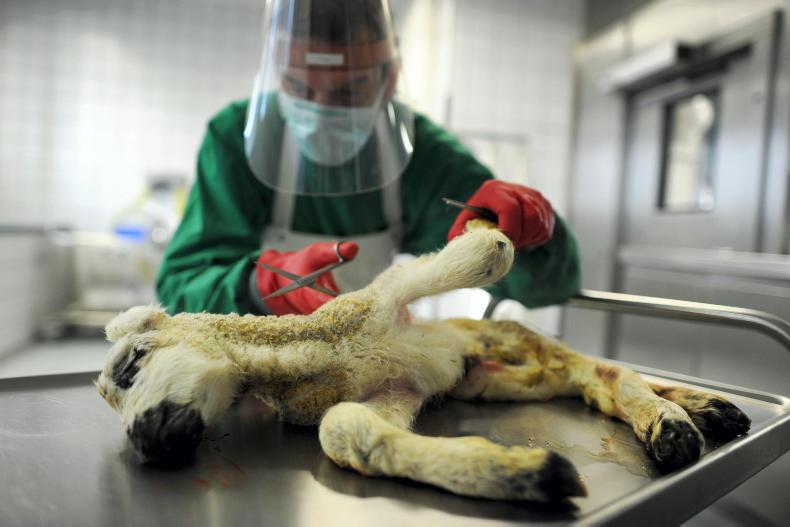The Schmallenberg virus may have extended further north through Ireland this year, according to the Department of Agriculture.
Athlone regional vet lab has investigated some cases of suspected acute exposure to Schmallenberg virus (SBV) in dairy herds in the Irish midlands this autumn, officials have confirmed.
The herds in question reported transient milk drop and fever. This “may indicate the virus has continued to move north on the island during the most recent vector season”, according to the Department of Agriculture.
SBV is mainly spread by biting insect carriers (vectors) such as the Culicoides midge, which transmits the virus during the period of April to November.

ELISA testing for antibodies in herds shows a high rate of positive results this year, with 1,862 positives recorded in 2017 compared with 591 in 2016. The table above shows the test results from clinical samples referred by private vets. There were 15 confirmed cases of SBV in bovine foetuses in 2017, compared with just two in 2015 and 2016 and a peak of 66 in 2013.
There is no national surveillance programme to monitor SBV, a spokesperson for the Department of Agriculture told the Irish Farmers Journal.
“[SBV] does not meet any criteria which would flag it as a surveillance priority for the State,” a spokesperson said, describing it as a low-impact disease except in exceptional circumstances. The disease does not transfer to humans, it is not regulated by the European Union and has no trade implications except for some semen exports.
“Schmallenberg virus is regarded as endemic in most of Ireland, albeit with a regional (southerly, easterly) distribution and in that context monitoring SBV antibodies would yield very little information of value, as so much of the population will have antibodies to the virus; animals remain seropositive for years and seropositive cows pass on antibodies to their calves,” continued the spokesperson.
Significant losses
However, the Department acknowledged the virus can cause significant losses in individual herds and flocks where a large number of susceptible animals are infected for the first time at a vulnerable stage of gestation. This is particularly the case where breeding is synchronised such as in early lambing flocks.
The Department offers free post mortem examinations and SBV screening for deformed ruminant foetuses and newborns where SBV is suspected.






SHARING OPTIONS